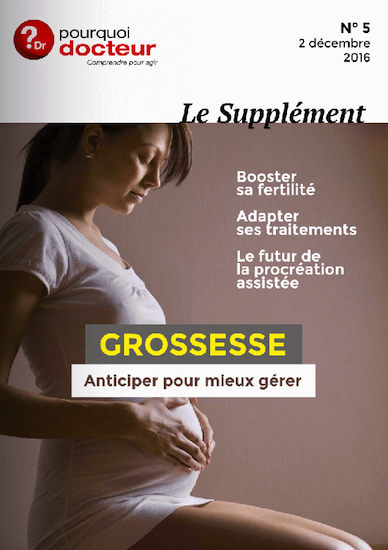Couples in which both partners are obese have more difficulty than others in having a child. If they smoke or have cholesterol, these difficulties worsen.

Couples, in which both partners are obese, encounter significant difficulties in having a child. The latter take 55% more time than couples of normal weight, reports a study American published in Human reproduction.
“Much work on fertility and weight has focused on women, yet our results underline the importance of taking into account the weight of both partners,” said Rajeshwari Sundaram of the National Institute for Health (United States ).
This work is indeed the first to look at the impact of a high body mass index (BMI) in men and women on the chances of conceiving a child. More than 500 couples were followed until pregnancy was declared or for a year. The women were between 18 and 44 years old, and the men were over 18 years old. Throughout the study, participants were required to keep a menstrual calendar, and also record all of their sexual intercourse and pregnancy test results.
Complications from severe obesity
At the same time, the researchers estimated the BMI of all the volunteers. They specify that 84 men and 228 women were considered to be of normal weight (BMI between 18.5 and 25), and 75 men and 69 men were severely obese (BMI over 35). They were interested in these two groups because no difference was observed for people suffering from overweight or obesity (BMI between 25 and 35).

They found that people with severe obesity had to try much longer to have children than normal-weight participants. They need 55% more time. This period is lengthened by taking into account the age of the couple, tobacco consumption as well as physical activity and cholesterol levels, underlines the study. The overtime is then 59%.
The authors underline that these durations correspond to those reported by couples having recourse to medically assisted procreation (MAP). They conclude that a couple’s obesity reduces their chances of conceiving a child naturally. Infertility specialists should therefore take this parameter into account during consultations.
They add that losing weight could surely help couples have a baby faster.
When to consult?
But when should you start to worry? According to the Biomedicine Agency, “it is reasonable to consult after a period of 18 months to 2 years of regular sex without pregnancy.” This period is especially true for young couples with no known risk. “For an older couple, or having a gynecological or andrological past suggesting a possible subfertility (insufficient fertility), it is better not to delay too long to perform a spermogram in men and a hormonal assessment in women”, explains the agency on its website.
These examinations can be ordered by the gynecologist or the attending physician. If the results suggest fertility problems, the couples are then brought to meet specialists in centers for medically assisted procreation. In 2014, more than 143,000 attempts at ART (in vitro fertilization and artificial insemination) were carried out, and more than 25,000 children were born using these techniques.

.

















